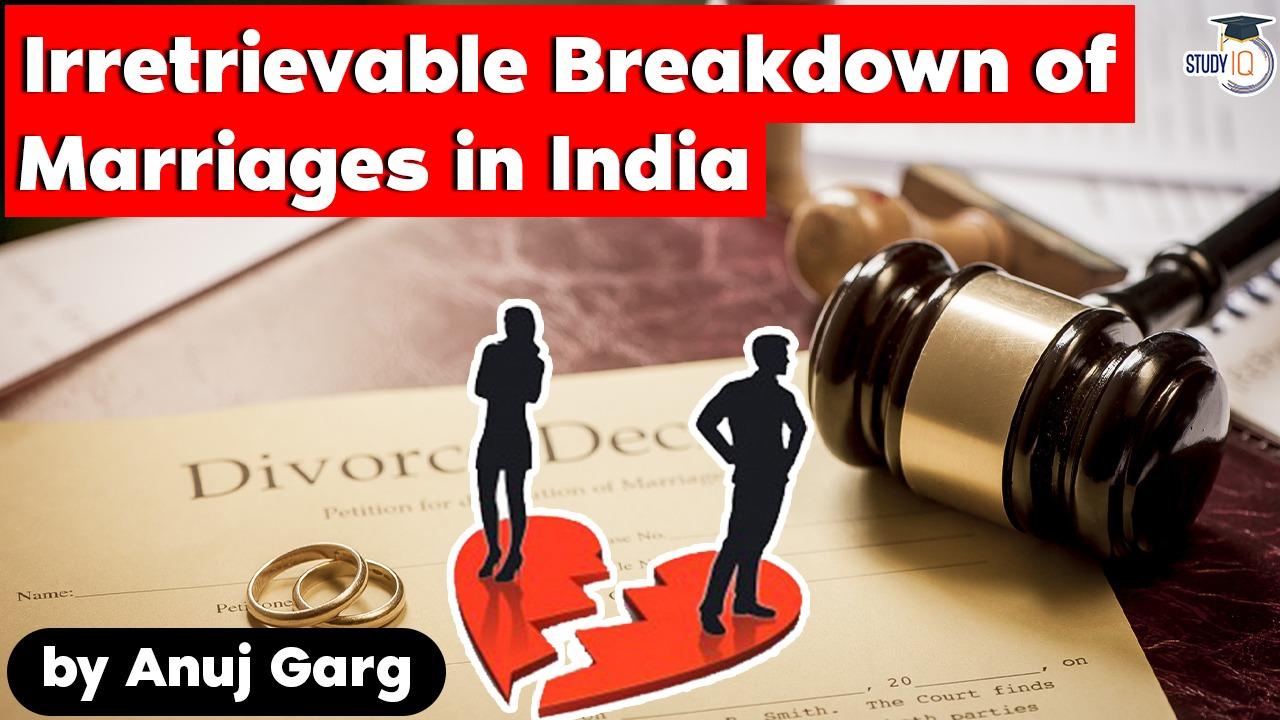Table of Contents
Whether
‘Irretrievable breakdown of marriage’
be introduced as ground for Divorce?
- Supreme Court Sivasankaran vs. Santhimeenal
On 13.09.2021, Hon’ble Apex Court spoke at length on the legislature’s reluctance to introduce irretrievable breakdown as a ground for divorce, in the absence of which courts have to pass decrees using powers under Article 142.
Grounds:
- The observation came at the end of a 20-year long litigation, with the Court dissolving a marriage on twin grounds:
- Cruelty under the Hindu Marriage Act and
- On account of irretrievable breakdown of marriage in exercise of the Court’s powers under Article 142 of the Constitution of India.
Decision:
- In the said case, the court held that continued allegations and litigation against spouse amounts to cruelty Section 13(1)(i-a) of the Hindu Marriage Act and would be a ground for divorce.
- That a couple cannot be forced to live together in a marriage that has not worked and cannot work.
Court’s observation:
- The judgment passed by Justices Sanjay Kishan Kaul and Hrishikesh Roy discussed at length the grounds for irretrievable breakdown.
- The Bench relied on an observation in a Law Commission report from 1978 to described the ground, that such marriages are merely a shell out of which the substance is gone.
- Difficult for women to retain social acceptance after divorce
- The Court in this judgment spoke to the rationale that is often taken to oppose such a decree of divorce.
- It was asserted that marriage is understood differently in different countries and under Hindu Law, it is considered a sacrament making it difficult for women to retain social acceptance after a divorce.
Pending Constitution Bench reference
- In 2016, the Supreme Court, while hearing an application for dissolution of marriage filed directly before it for consideration under Article 142, questioned the direct use of this power. Therefore, it referred two questions to be considered by a Constitution Bench.
- “ What could be the broad parameters for exercise of powers under Article 142 of the Constitution to dissolve a marriage between the consenting parties without referring the parties to the Family Court to wait for the mandatory period prescribed under Section 13-B of the Hindu Marriage Act.
- Whether the exercise of such jurisdiction under Article 142 should not be made at all or whether such exercise should be left to be determined in the facts of every case.”
Recommendations of Law Commission Reports
- In the 71st report of the Law Commission of India in 1978, authored under the Chairmanship of Justice HR Khanna, the fault theory of divorce was departed from, and a situation where the husband and wife reach a breaking point with no possibility of reconciliation was considered.
- It recommended that irretrievable breakdown of marriage should be a ground for the grant of divorce under the Hindu Marriage Act.
- Another Law Commission Report in 2009 reiterated this recommendation, which culminated in the Marriage Laws (Amendment) Bill of 2013 that incorporated divorce on ground of irretrievable breakdown of marriage.
- However, the Bill was never passed.
Systemic Cruelty
- People’s lives are getting stuck for years and years in trials. If one party is saying as far as I’m concerned, the marriage is over, the other party saying otherwise cannot breathe life into a marriage. After all, that requires two people.
Way Forward
- The way forward is for the legislature to take into account the observations of the Court in this judgment as well as the recommendations made by the Law Commission on the need for introducing such a ground in our statute books.






















 WhatsApp
WhatsApp